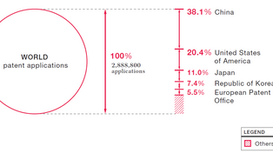What is not copyrightable?
- Admin
- May 11, 2023
- 1 min read

Copyright protects original works in the cultural and artistic fields. Originality is a crucial element for a work to be protected by copyright. It means that a work created by one person will be different from a similar work created by another person, as long as it has not been copied from the other work. If a work is too simple to appear unique, it may not be protected by copyright due to lack of originality. Titles of articles or books are generally not considered copyrightable as they are too short. Although national copyright laws do not explicitly mention that titles are not copyrightable, they are usually not protected by copyright.
The level of originality required for a work to be protected by copyright can vary by jurisdiction. For example, current news stories may not be considered copyrightable in some countries, while in others, they may be protected by copyright, even if they are subject to a copyright exception. Copyright protects the unique expression of facts, ideas, or principles by a specific author, rather than the underlying facts, ideas, or principles themselves.
Whether a work is copyrightable has no connection to whether it is illegal or prohibited by law from being published or disseminated. For instance, pornographic or obscene works may be prohibited in some countries, but they can still be protected by copyright. However, enforcing copyright in such jurisdictions where the work is illegal or banned may be challenging, especially if it would mean admitting to criminal activity.





















Comments